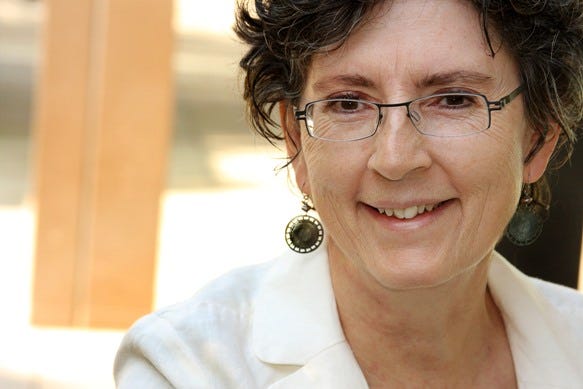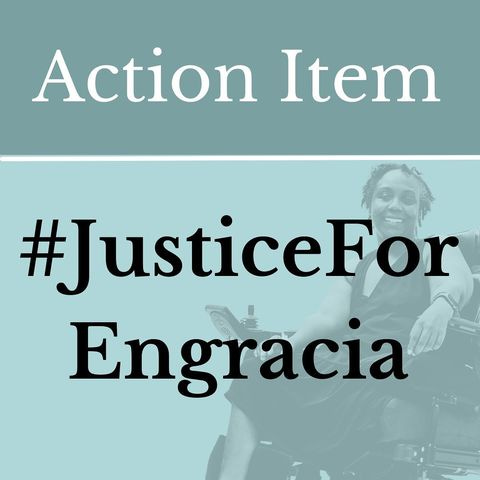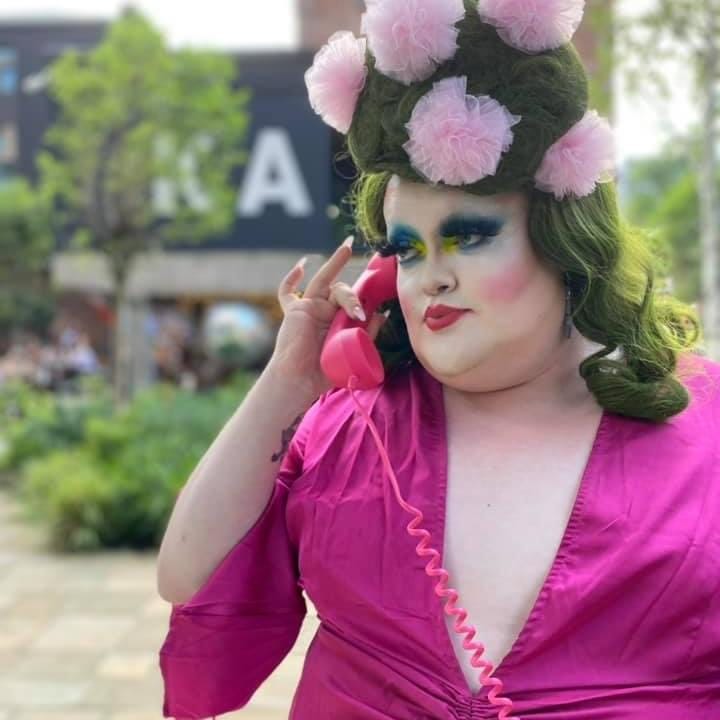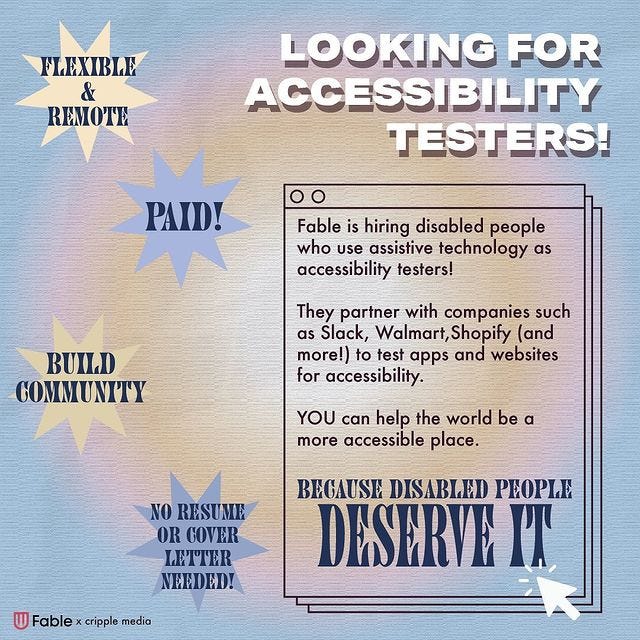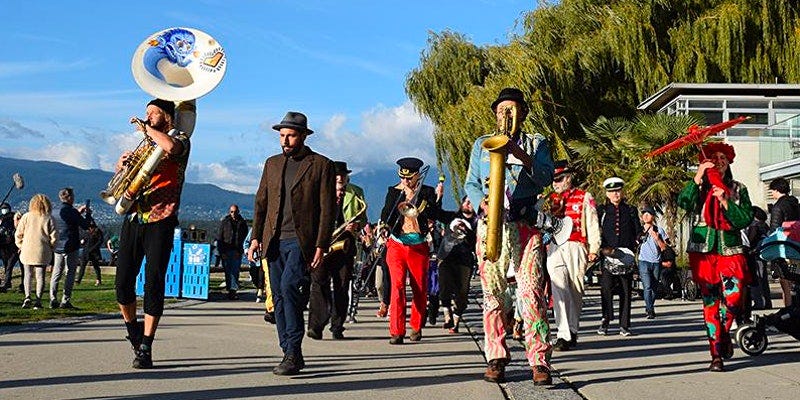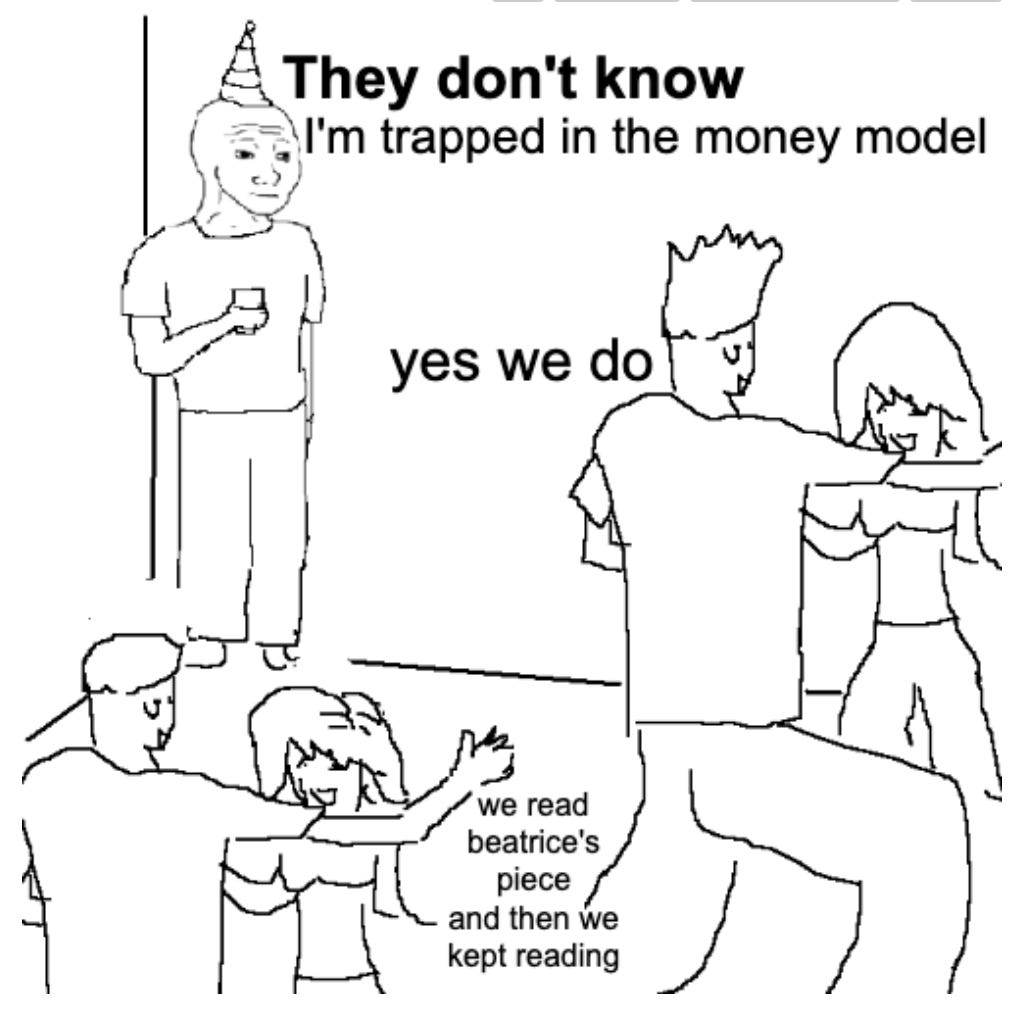We have exclusive content to mark the 10th issue of Crip News! Below, read Beatrice Adler-Bolton’s tribute to Marta Russell on the occasion of the anniversary of Russell’s death this week. Her “money model of disability,” as Beatrice explains, helps us understand the rapid political economic changes that maintain and advance ableism right now - and it offers an alternative to more well-known social and cultural models of disability.
Stay tuned for more information about a symposium on Russell’s work to be held in 2022. And for a deeper dive into the money model, check out Beatrice’s post out today on Blind Archive.
First, some news:
Senate Democrats are hoping to pass the Build Back Better Act by Dec. 25th. Manchin says maybe not.
The Biden administration has announced commitments to developing a “disability inclusive democracy,” including a global Year of Action.
As COVID hospitalizations have increased in the last few weeks, 4 states have called the National Guard into care settings.
A blue graphic with white text at the top that reads “Action Item” with black text underneath that reads #JusticeForEngracia. In the background there is a faded photo of Engracia Figueroa, a Black woman who uses a wheelchair.
The U.S. Department of Transportation and the Architectural Transportation Barriers and Compliance Board (Access Board) are jointly hosting a public meeting this week about rulemaking to improve accessibility of airplane bathrooms for passengers with disabilities, including performance standards for the aircraft’s onboard wheelchair. We are still waiting for #JusticeForEngracia.
The U.S. Court of Appeals for the D.C. Circuit has thwarted the FDA’s attempt to ban devices used to administer electric shocks on people with developmental disabilities, like the kind that are in use at the Judge Rotenberg Educational Center in Canton, MA.
Rest in power, Marsha Saxton, activist and co-founder of the Disability Studies minor at UC Berkeley.
And some art news:
The NYC Dept. of Cultural Affairs will offer targeted funding for disability arts in its recent commitment of $51.4 million to arts organizations. $1 million will go to the Disability Forward Fund and the Language Access Fund.
In a new report and manifesto, Disability Arts Cymru in Wales articulates a rights-based approach to arts and culture.
Disabled drag artist Marilyn Misandry discusses the ways nightlife remains access-averse.
carrie sarah kaufman kicks off a series of interviews with disabled artists for SIXTY by talking with Rise about disabled sanctuary.
The Metropolitan Museum of Art has finally announced it will remove the Sackler name from 7 exhibition spaces, disengaging from the family’s plan to use philanthropic donations to divorce its public image from their criminal campaign to addict people to opioids.
Memoria Mortuorum: Marta Russell
Beatrice Adler-Bolton
Eight years ago this week, Marxist disability theorist Marta Russell passed away on December 15, 2013, five days before her 62nd birthday. To celebrate her memory, I’m thrilled to share one of the theories Russell is known for, which has been crucial to my own political praxis as a disabled person—called the money model of disability. The money model is an important and understudied model of disability alike in use, but quite distinct in politics from, the other more widely-known and used models of disability within disability studies like the social model, medical model, charity model, or biopsychosocial model. Russell’s criticism centered around how means-testing, administrative burdens, underfunded social safety net supports, and a society obsessed with cost-benefit analysis all worked together to perpetuate, what she termed, the “money model” of disablement, more popularly known as the money model of disability. Russell’s work was also highly critical of the liberal disability rights movement, arguing that disability rights discourse would benefit from embracing leftist thought and political-economic analysis. As Russell’s sometimes-collaborator, legal scholar, Ravi Malhotra, explained in a book dedicated to her memory, “Where so many disability studies scholars have been distracted by issues of identity and culture, for Marta, class was central.”
Russell rejected the post-modern theory of the disabled body as translated through a lens of individual rights, offering a refreshing perspective on the economic forces driving systemic oppression of disabled people. Best articulated in her 1998 book, Beyond Ramps: Disability at the End of the Social Contract, Russell’s work aims at going beyond disability-stigma as the primary driver of social exclusion. Instead, Russell looks to the political-economic preferences that prevent people with disabilities from living and thriving under capitalism. Russell called disability, as atomized and segmented by dominant economic preferences, the New Reserve Army of Labor, arguing that the commodification of disablement—as it exists under neoliberal capitalism—presents an opportunity to reclaim disabled people unable to be ‘productive’ workers. Those not welcome in the workforce were still put to use for the “economic order,” creating wealth from exploiting the physical needs of survival as a means of squeezing surplus profit from the very flesh and blood of non-workers. As Russell explains: “...persons who do not offer a body which will enhance profitmaking as laborers are used to shore up US capitalism by other means.”
The money model is more than just a medicalized framework describing the healthcare costs associated with disabled life under capitalism; it is a type of strategy, a “corporate solution” for disability writ large. Medical professionals, rehab clinics, physical therapy, hospitals, pharmaceuticals, dialysis clinics, infusion centers, home-care, insurance companies, device companies, mobility aid companies, mental-health hospitals, the charity industrial complex, and nursing homes only scratch the surface of describing the scope of the money model. Russell’s theory is a lens like any other model of disability, a way to understand ourselves, our world, and our economic suffering, offering deep insight into the commodification of care and survival that is our day-to-day reality under capitalism. Disabled life, already so precarious, has been further threatened by the profit-driven approach to the Covid-19 pandemic, which has at every turn has discounted and ignored disabled, chronically ill, or otherwise medically vulnerable people. As we celebrate Marta Russell’s life through her work, it’s important to remember that the money model is ultimately a means by which we can look from a critical perspective at the way disability is leveraged by capitalism. Using Marta Russell’s money model is crucial in order to learn the lessons we need to help us build a better world where no one is disposable and everyone has access to what they need to survive.
Check out the longer read on the money model out today on Blind Archive.
Beatrice Adler-Bolton is the co-host of Death Panel podcast about the political economy of health, and co-author of the forthcoming book Health Communism (Verso, 2022) with her partner and collaborator, Artie Vierkant.
Now, a few calls:
Simi Linton is looking for a part-time, paid editor for a book project about Disability Arts! An editor should be able to bring focus, organization, and clarity to seemingly disparate pieces of a complex and ambitious project. Priority will be given to disabled people of color. Application details and more information at Proclaiming Disability Arts - Call for Editors.
The Health Justice Commons is hiring a Social Media and Community Engagement Coordinator. The position is 15-20 hours per week for 12 months, with the possibility for long-term. $25-28 per hour. Learn more here.
A graphic with text, laid on a yellow, white, and red gradient background. The text reads: “Looking for accessibility testers! Fable is hiring disabled people who use assistive technology as accessibility testers! They partner with companies such as slack, Walmart, Shopify (and more!) to test apps and websites for accessibility. YOU can help the world be a more accessible place, because disabled deserve it!” In stars next to this text, more text reads: “Paid! Flexible & remote! Build community! No resume or cover letter needed to apply!” At the bottom of the graphic, “Fable x Cripple Media.”
Finally, this week’s events:
On Thursday, Dec. 16th from 4-5:30pm ET on Zoom, Healing/Arts will offer a workshop with Laura Kolbe who will discuss her poetry collection Little Pharma and using creative writing to reckon with moral conundrums as they pertain to health and the body. Access features by request. No cost. Register here.
Also on Thursday, Dec. 16th from 6-8pm CT on Zoom, Listen to Dis’ will present Theatre Directing: Artistic Leadership Through Dialogue with Charlie Peters. ASL, other access features by request. No cost. Register here.
On Friday, Dec. 17th from 7-9pm ET on Zoom, Other Sights for Artists' Projects will host “Open Access: Setting a New Cultural Standard for Accessibility” with Carmen Papalia. Auto-captioning, live-captioning, ASL and, graphic recording, other access features by request. No cost. Register here.
Also on Friday, Dec. 17th from 3-4:30pm ET on Zoom, the Health Justice Commons will host a Winter Solstice Tea & Year End Reflection. ASL, live closed captioning, multi-language interpretation, and other access features by request. No cost. Register here.
On Saturday, Jordan Lord’s film Shared Resources will screen as art of Visible Evidence 2021 at 2pm ET online. More info here.
Also on Saturday, Dec. 18th from 3-7pm ET in person, the Garner Art Center in Garnerville, NY will host an opening reception for ON PINS AND NEEDLES: Accessible Burlesque & the Art of Adornment by Delilah Blue Flynn & Magdalena Truchan. More here.
Check out the 6 new support groups for Winter 2022 organized by the Fireweed Collective.
Looking for a way to integrate disability artistry into your gift-giving right now? Check out works from disabled artists at organizations like Creative Growth or Summertime Gallery. Or get in on a limited release of a sex toy by and for disabled people.




